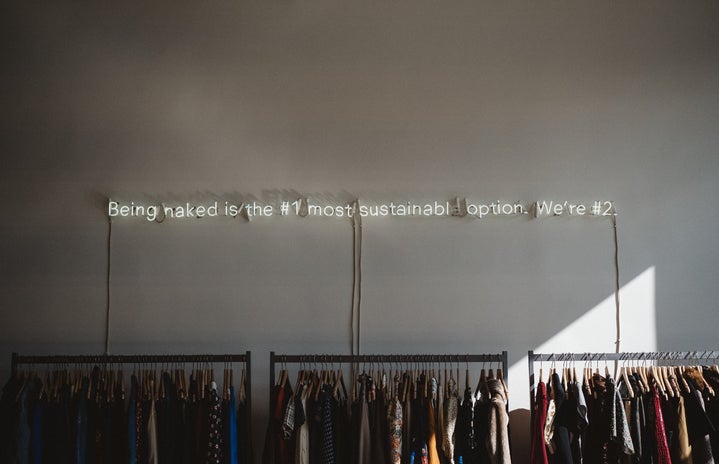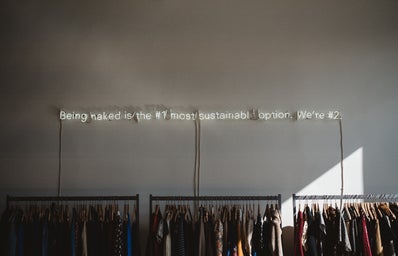You might have heard the phrase “there’s no ethical consumption under capitalism” thrown around. With ‘ethical’ consumerism being the latest trend to inspire new products, the discussion has increased hugely on whether making these choices and spending the extra money has any environmental or social impact. It’s impossible to log onto Twitter or Instagram without experiencing some form of discussion on ethical consumerism. This is often varying opinions on the ethics and viability of fast fashion and a call to purchase everything from online second-hand retailer ‘Depop.’
If we view this issue from the perspective of social class, sustainability is somewhat inaccessible to those from working-class backgrounds- whether it be the extra money to buy items branded as ‘sustainable’ or even the price of time. Time is an often-overlooked factor in class discussions; it’s no surprise that the working-classes- often doing a 40-hour week- have far less expendable time than individuals from middle- or upper-class backgrounds. Young people from working-class backgrounds are far more likely to have a part-time job alongside their studies, placing a further limit on the time they have available to spend hours in thrift or charity shops when shopping for clothes. Time is a privilege that wealth affords. However, it is undeniable that shopping second-hand, especially for clothing items often means you pay less than half of the retail price- from personal experience anyway. Especially when you consider that charity shops have been a lifeline for many from lower-income backgrounds for decades, this creates an almost impossible discussion to resolve.
There’s definitely a market for sustainable items, with the US market projected to reach $150 billion in sales by 2021. People are willing to put their money where their mouth is in terms of spending according to their ethics and invest in brands such as TALA- a sustainable activewear brand founded by Grace Beverly- and Reformation- a mid-range brand founded in 2009, often considered one of the leading brands in the sustainable market. Both companies aim to use recycled materials for their clothes, with TALA attempting to keep prices at a more affordable level- in my opinion.
Many clothing brands have chosen to capitalise upon the current sustainability trend and move towards vintage or ‘thrifted’ fashion- with online retailer ASOS launching its own ‘sustainable’ range and a vintage line- called “Reclaimed Vintage.” Whilst some items are reasonably priced, a lot have had prices hiked up so as to compete with gentrified ‘vintage’ prices in some stores.

However, there’s a serious paradox here; the implications of a term such as ‘ethical consumption’ denote that participation in capitalism is at all ethical. Can we ever label profiting from the exploitation of others as ‘moral’? Plus, we’ve already said that the cost of consuming fast-fashion in this way is often higher.
If we take the statement “there’s no ethical consumption under capitalism” (although, it’s often used to justify poorly-made decisions ) into consideration, the debate becomes more complex. Yes, it’s true that we can never truly consume ‘ethically’ under this system. Nevertheless, whilst we have no option other than to participate in this system to survive; however, I believe that can all make conscious decisions to reduce our impact, both environmentally and socially. This can be anything from fixing broken clothes before throwing them away to buying second-hand goods from sites such as ‘Depop’ or charity shops, rather than buying new items- even if they do claim to be made sustainably. Another important consideration is buying fewer goods from huge corporations who are known for mistreating workers and supporting smaller companies, where financially viable.
Obviously buying a few necessary new items isn’t totally evil, but perhaps we could be more conscious of how often and how likely we are to wear something before pressing ‘check out.’ I like to think about how many outfits I can include a piece in before I buy it. Or another way to reduce consumption is to leave something in your basket for 24 hours- if you still want it after that, then press ‘check out’!!
Rather than striving for the perfection of ‘ethical’ consumption, we can choose to be more conscious consumers. We’ll never be able to combat the damage being done by these corporations but we can do our individual bit to help reduce waste and over-consumption.



